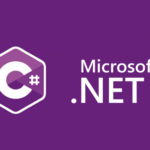
Over the course of the past few years, Microsoft has been trying to unify the runtime of open-source development. Thus, supporting several architectures and platforms. As of now, the production release of .NET 7 of the company of this week showcased the company’s efforts.
In 2016, the initiative for the unification of .NET started with .NET 5. It continued with .NET 7. Thus, indicating that developers could:
The one set of libraries enables the developers to build several types of apps like Web, Cloud, Mobile, Gaming, Desktop, IoT, and Android. Recently, in a blog post, Microsoft revealed the recent improvements as per the new release. Given this advancement, apps built on .NET 7 will support various CPU architectures and operating systems. Additionally, it will only provide access to its own APIs but APIs of OSes comprising Android, iOS, macOS, and Windows could also be accessible.
.NET MAUI is a Multiplatform App UI. It is an open-source cross-platform framework. It is designed for developing apps for Windows, Android, iOS, and macOS devices based on a shared code base. The .NET MAUI is accompanied by .NET 7 release. Both .NET and MAUI add improvements in performance. It is comparatively faster than .NET 6. Moreover, it enables Map controls, a point hover gesture, Windows size adjustments, and a right-click facility for developers designing desktop applications.
.NET 7 also extends support for IBM’s Power chips that run on Red Hat Enterprise Linux (RHEL). In recent years, Microsoft built up the presence of .NET in Azure.
Given the startup times of .NET 7 applications, developers may face longer wait. Since the SDK release is installed for the creation of new app services.
Research Snipers is currently covering all technology news including Google, Apple, Android, Xiaomi, Huawei, Samsung News, and More. Research Snipers has decade of experience in breaking technology news, covering latest trends in tech news, and recent developments.